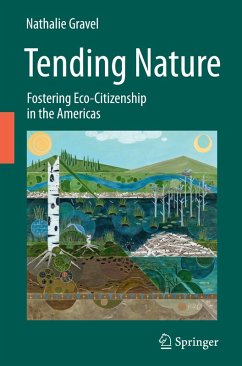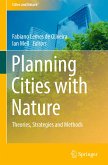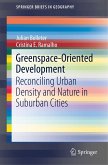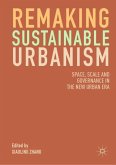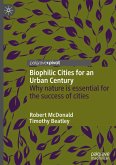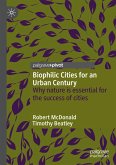This book aims to enhance understanding of the foundational principles and ethical considerations of citizen engagement in environmental conservation through an examination of successful cases of shared environmental governance in the Americas. It seeks to inform policymaking on strategies for fostering behavioral change and advancing towards co-management of national public resources and the commons. These cases are analyzed through a geographical lens to provide a framework for reimagining eco-citizenship grounded in bioregionalism. This perspective diverges from the notion of eco-citizenship as a universal culture, advocating instead for its integration within the collective habitats of citizen groups.
Readers will gain insights into fostering reconciliation between nature and humanity by empowering diverse stakeholders to lead Blue/Green/Bee conservation initiatives. Emphasizing community learning, environmental awareness, and citizen participation, the book enriches decision-making processes and promotes environmental justice for all living organisms. The selected case studies from Brazil, Canada, Costa Rica, Mexico, and the United States highlight pioneering innovations in Blue/Green/Bee policy planning across urban, periurban, and rural settings. These initiatives propose empathetic and respectful approaches to nurturing our natural surroundings, including methods for co-management, networked urban gardening, wild native bee conservation, water source protection, community-based water management, river revitalization, and metropolitan green space stewardship.
This book will be invaluable to students, urban and rural planners, researchers, academics, networking professionals, policymakers, international development practitioners, environmental organization personnel, and enthusiasts of the natural world alike.
Readers will gain insights into fostering reconciliation between nature and humanity by empowering diverse stakeholders to lead Blue/Green/Bee conservation initiatives. Emphasizing community learning, environmental awareness, and citizen participation, the book enriches decision-making processes and promotes environmental justice for all living organisms. The selected case studies from Brazil, Canada, Costa Rica, Mexico, and the United States highlight pioneering innovations in Blue/Green/Bee policy planning across urban, periurban, and rural settings. These initiatives propose empathetic and respectful approaches to nurturing our natural surroundings, including methods for co-management, networked urban gardening, wild native bee conservation, water source protection, community-based water management, river revitalization, and metropolitan green space stewardship.
This book will be invaluable to students, urban and rural planners, researchers, academics, networking professionals, policymakers, international development practitioners, environmental organization personnel, and enthusiasts of the natural world alike.

